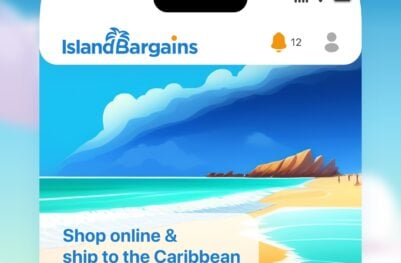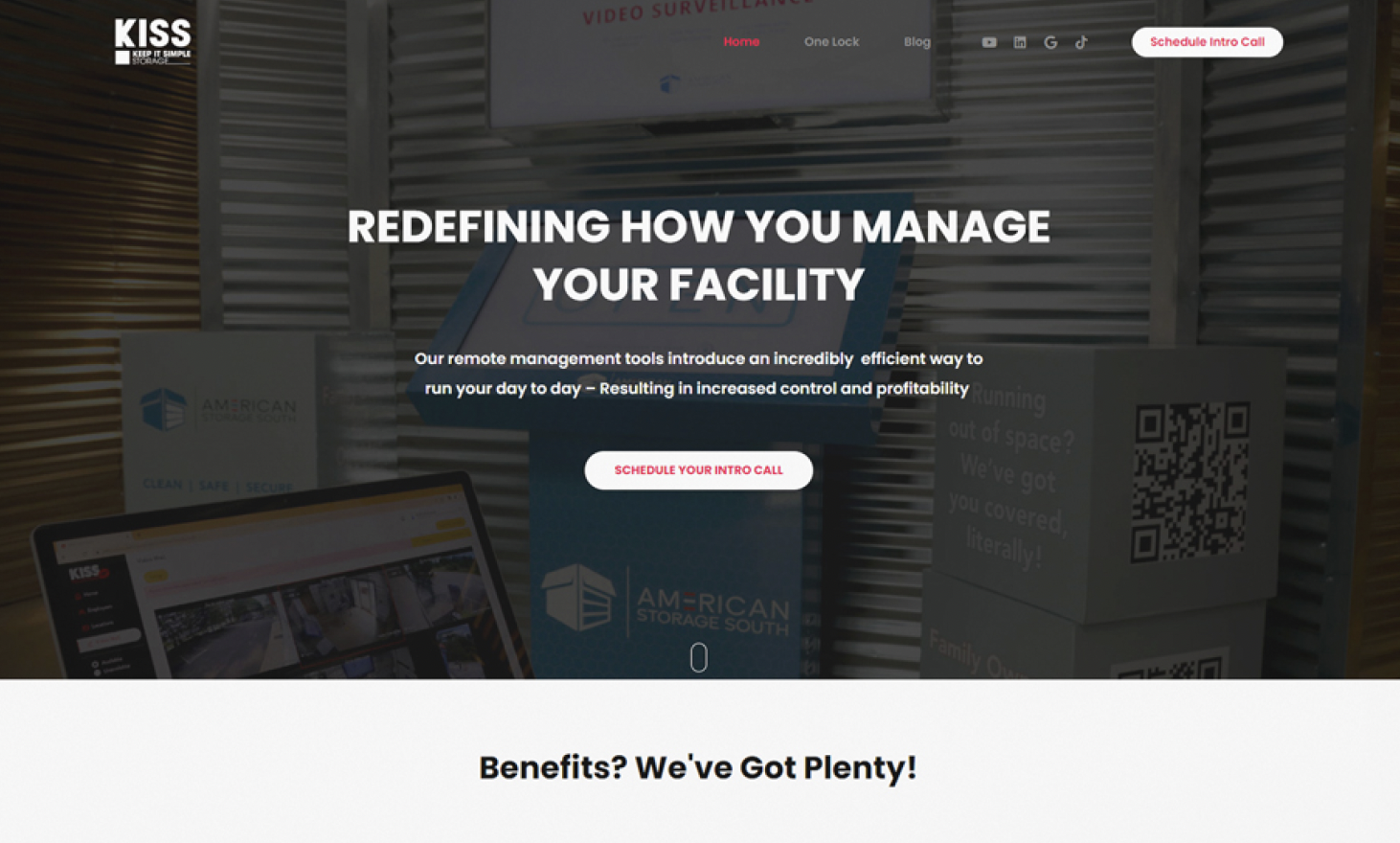- Developers
- Developer Blog
- Mobile App Development
- When to Create an app to Support Your Website?

profile

By Aran Davies
Verified Expert
8 years of experience
Aran Davies is a full-stack software development engineer and tech writer with experience in Web and Mobile technologies. He is a tech nomad and has seen it all.
Interested in knowing when to create an app that supports Your website? Here is a complete breakdown including the pros and cons of doing so.
Let’s start our discussion on when to create an app to support your website by first looking at the importance of mobile devices today including their market trends.
The importance of mobile

One fact is settled, and that is that you can no longer ignore mobile if you want to reach your customers! The following statistics illustrate that:
- The statistics from the last 3 years show that mobile devices account for nearly half of the total Internet traffic.
- The global mobile data traffic has likely become 77.49 exabytes per month in 2022, from 19.01 exabytes per month in 2018, as this Statista report
Mobile apps: Increasingly popular?
There is no doubt that the market for mobile apps is growing. The following statistics attest to this:
- Mobile users spend an average of 4.2 hours daily consuming media on mobile, which is 87% of their total usage time.
- The mobile app market size will reach $654 billion by 2025.
- The total number of mobile app downloads have likely reached 258.2 billion in 2022, from 178.1 billion in 2017.
- An average American spends 198 minutes per day using mobile apps, which is significantly more than the 168 minutes they spend watching TV.
Read more such important statistics in “51 jaw-dropping app usage statistics & trends]”.
Does the popularity of mobile apps signal the end of mobile websites?
This brings us to the question of whether mobile websites are losing their importance. They are not, as evident from the very report mentioned above! It clearly points out that the most popular apps are Facebook, YouTube, and Facebook Messenger.
You are most likely not launching a business that will compete with Facebook from day 1! Your customers will first visit your website on their mobile. Only after they visit it a few times, and the engagement grows, the question of downloading your app will arise. This is logical since your business hasn’t yet acquired the iconic status of Facebook or YouTube!
Amazon earns more revenue from its mobile app than its mobile website, and Walmart is approaching that point. For most of the other companies, their mobile website generates far more revenue than their mobile app.

Get a complimentary discovery call and a free ballpark estimate for your project
Trusted by 100x of startups and companies like
Read more about this analysis in “Mobile apps vs. mobile web: do you have to choose?”.
Should you create an app to support your website?
Whether or when to create an app to support your website depends on several questions, and they are as follows:
1. Do you need to use device-specific hardware?
Do you have features and functionalities in your website that would require the use of mobile device-specific hardware, e.g., a microphone? If that is the case, you should indeed develop and launch a native mobile app.
Native mobile apps are built for specific mobile platforms like Android or iOS. These apps can make use of device-specific hardware like cameras, moreover, they can take advantage of GPS. Read more about this in the “native app”.
On the other hand, if you don’t need to use these features, a responsive website that displays well on mobile devices is sufficient. You can then save the effort required to develop a native app.

2. How important are speed and performance for you?
Are you serving such content to your customers that speed and performance are very important considerations for you? In that case, you should plan to create a native mobile app.
Mobile users install native apps locally, i.e., on their devices. When a developer creates a native app, he/she develops it based on platform-specific standards, e.g., Android and iOS.
This makes native apps faster than mobile websites, moreover, they perform better than responsive websites. You can read “How to improve your mobile app performance” for more insights into this.
What if the content doesn‘t require the best speed and performance? You can stick to your responsive website, and avoid the expenses to create a native app.
3. Are you an eCommerce entrepreneur?
If your core business is eCommerce, you should seriously consider offering your customers a native mobile app. I recommend this due to the following reasons:
- Speed is a key consideration for online buyers, and native mobile apps perform far better than websites.
- A well-designed “User Interface” (UI) of a mobile app appeals more to mobile users than responsive websites do. There is limited space available on mobile screens, therefore, mobile app UI design standards focus specifically on user-friendly UI.
- Mobile users often find it hard to login to websites from their devices. Native mobile apps can make it much simpler using platform-specific modern technologies. Mobile websites can‘t take advantage of these.
- Native apps enable users to store payment options, which makes the shopping experience more seamless.
You can learn about the importance of native mobile apps for eCommerce in “Mobile web vs. mobile app”.
If your business is new, you might need to continue your focus on your website. You will likely see fewer mobile app downloads initially, therefore, your website will still be the primary vehicle for you to attract customers.
However, offering your loyalty program via your mobile app will be a good idea here. This will increase the engagement with your loyal customers, moreover, the app will also drive more revenue.
Several businesses offer their loyalty program via their mobile app. I have earlier described quite a few such examples in “Top 10 Loyalty Apps”.
Hire expert developers for your next project
1,200 top developers
us since 2016
4. Is security an important consideration in your business case?
The importance of security varies depending on the business case. If you are dealing with sensitive information, then security is very important in your business. If you are not, then the business has a lower risk profile, and a mobile website is fine.
If security is an important consideration in your business case, then you should create a native mobile app. Native apps offer higher security due to the following reasons:
- You can easily implement multi-factor authentication in a native app.
- The app can have an embedded certificate, and this works better than a browser.
- API calls can have fine-grained risk evaluation and authorization in the case of a native app, and it’s an advantage over mobile websites. You can learn more about this in “4 reasons a native mobile app can be more secure than a mobile browser-based app”.
- In a native app, security isn‘t traded off for convenience, which is often the case with browsers. E.g., users can authenticate using their thumb, while the “Secure Sockets Layer” (SSL) authentication is also in use.
5. Do you need the customer to take several actions on the content?
Are you serving just content that users will consume and probably click one or two links? Then a mobile website is sufficient. A mobile website isn’t sufficient if you need customers to take several actions, e.g.:
- Sign-up;
- Log-in;
- Fill up lengthy forms;
- Enter information accurately;
- Understand the flow of actions and act accordingly.
These are not easy on a mobile screen, and customers need a UI that is helpful. This calls for a native mobile app. Here, the UI designers focus on giving a user-friendly UI to customers, one that they can comfortably use despite the small screen size.
Mobile platforms like Android and iOS have specific guidelines for UI design, e.g.:
- “Material design” guidelines for Android apps UI design;
- “Human Interface Guidelines” for iOS apps UI design.
6. Do you need customers to take offline actions?
Note that your customers always need an Internet connection to access your responsive web app. If you need to offer offline functionalities, then a responsive web app is simply not an option for you.
On the other hand, native mobile apps can work offline. Users can access some functionalities offline, and they need to only periodically connect to the Internet. For e.g.:
- Amazon Kindle, the popular eBook reader app works well offline. You can buy a book, download it to your device, and then you can read it offline.
- Google Maps have excellent offline capabilities. You can download full city maps, and use them without an Internet connection.
You can read “Best offline Android apps: no internet, no problem”, which describes more native mobile apps that work well offline.
7. Do you need to send push notifications to customers?
Push notifications are excellent for engaging customers. Here, a server sends information to a device without any request from the client, therefore, it‘s also called “Server Push Notifications”.
Users don‘t need to keep the app open on their devices to receive push notifications. Mobile users can see these notifications even when their phone is locked.
There are several benefits of push notifications, e.g.:
- Users opt-in for push notifications when they install an app. They can also opt-out later, therefore, users have greater control over receiving these notifications.
- Push notifications don‘t expose businesses to harassment-related litigation risks since they operate with an opt-in/opt-out arrangement.
- Businesses can send deep links or other useful information, and engage their customers. Push notifications to improve customer retention.
Read more about these advantages in “Push notification”. If you need to send push notifications, then you certainly need to create apps natively, and just a responsive web app won‘t do.
8. How do you plan to make your content available?
Responsive websites are available over the Internet for your users/customers. Anyone with an Internet connection can find them and access them.
While this can improve the availability of your content, you need to remember that there are far too many websites! Your website must rank high in searches, and that‘s often hard, given the stiff competition!
If you offer a mobile app, you will need to offer it through an app store like the Apple App Store or Google Play store. You need to follow stringent guidelines for them to accept your app, e.g.:
Hire expert developers for your next project
- “Publish your app”, for Google Play;
- “Submitting iOS apps to the app store”, for the Apple app store.
Google and Apple have stringent review processes, and it may take some time for your app to become available on the app store.
However, mobile users can easily find your app on app stores by searching using the category and other relevant information. App users also know that the app has undergone a stringent review, therefore, they can feel confident about the quality of the app.
9. How‘s your budget?
It doesn‘t cost a lot to develop a responsive website. Ongoing maintenance of an existing website also costs less, since the typical manpower cost for website maintenance is less.
With IT infrastructure becoming cheaper with every passing year, website hosting costs are less too. For example, top website hosting providers like InMotion Web Hosting and Bluehost have very reasonable pricing plans, as you can find in “Best web hosting service for websites”.
On the other hand, developing and ongoing maintenance of a native mobile app is expensive. The following factors make it an expensive project:
- A native mobile app is specific to a platform, therefore, you need to develop at least two apps to cover the popular mobile platforms, i.e., Android and iOS.
- You will need iOS developers with Objective-C. It’s a powerful programming language modeled after C, and it provides object-oriented capabilities. Finding programmers with Objective-C skills can be hard. Nowadays, Swift programming language with a relatively low learning curve is also popular for iOS app development.
- For the Android app, you need to hire Java or Kotlin programmers, moreover, you may need to address the licensing aspect.
- You need to hire UI designers, testers, business analysts, and a project manager (PM). Our guide “Freelance app development team vs. field expert software development teams” can help you.
- Developing and managing the mobile backend can take a considerable amount of time. You can expedite this by using a “Mobile Backend as a Service” (MBaaS) platform, and you need to buy this service from an MBaaS provider. AWS Amplify is a great option.
- The mobile app must work on many different mobile devices. You need to procure a solution to test the app on many mobile devices simultaneously, and pCloudy with their mobile devices lab on the cloud can help.
- Maintenance of the mobile app will cost you more since there are two code bases. Read “Web app vs. native app: pros and cons” to gain more insights on this.
If your budget is tight, you can always convert your website into a mobile app and see how it goes, before investing more money into the entire project.
Wondering when to create an app to support your website?
Native mobile apps and responsive websites both have their advantages and disadvantages. Performance, security, and engagement considerations might prompt you to create a native mobile app to support your website.
Such a development project can be complex, and you might need to work with a software app development company.
Read our guide “How to find the best software development company?”, before you partner with one.
If, you as a business CEO or CTO, are still looking for a reliable and professional software development partner to build your own app, why not look at DevTeamSpace with its field-expert software developer community experienced in developing software solutions using cutting-edge technologies?
Write to us your initial web or mobile app development process specifications via this quick form and one of our account managers will get back to you further discuss your app idea and help partner with the right app developers, etc.
Frequently Asked Questions
Provided that you have the expertise in undertaking a website conversion, there is no reason why you cannot turn your website into a successful app. If you need the help of an app developer then contact DevTeam.Space with your questions.
An app has a number of advantages over a website. To start with, the vast majority of people now undertake much of their online activity via smartphones and apps. This means that you will be able to access this vast new user market and boost your profits significantly.
If you are looking for expert developers then you should start with DevTeam.Space. You will be matched with the most suitable developer from its large community of vetted developers.

Alexey Semeney
Founder of DevTeam.Space
Hire Alexey and His Team To Build a Great Product
Alexey is the founder of DevTeam.Space. He is award nominee among TOP 26 mentors of FI's 'Global Startup Mentor Awards'.
Alexey is Expert Startup Review Panel member and advices the oldest angel investment group in Silicon Valley on products investment deals.


